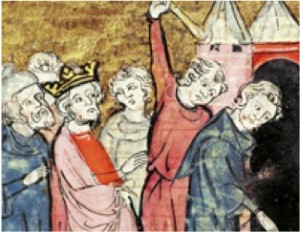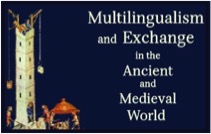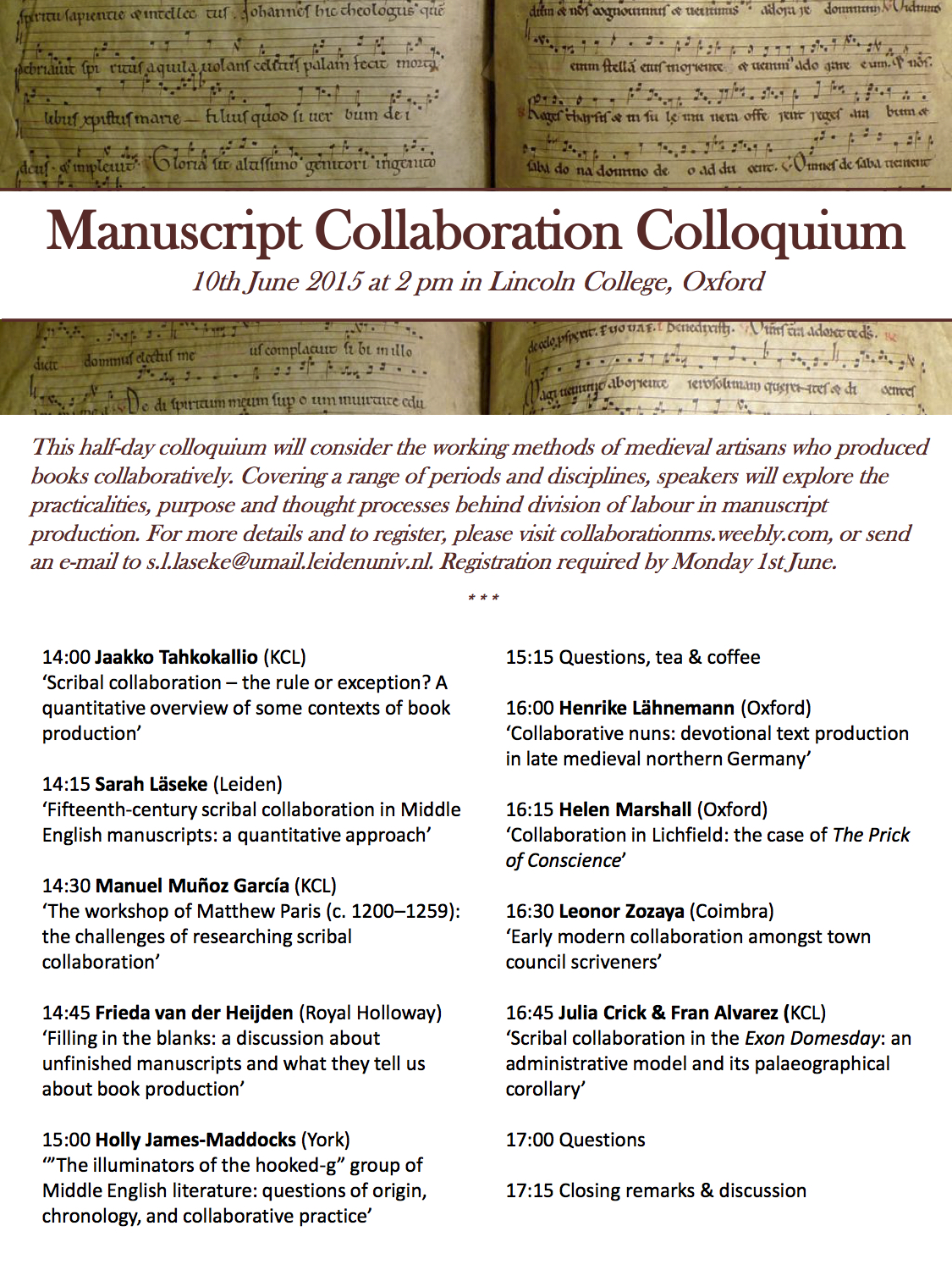Author Archives: admin
Middle English Graduate Seminar (13 May)
The next Medieval Graduate Seminar will be held on Wednesday 13th May. Prof. Barry Windeatt (https://www.english.cam.ac.uk/people/Barry.Windeatt/) will be speaking on ‘True Image? Versions of the Vernicle in Medieval England’.
We’ll gather as usual around 5.00 in the English Faculty Board Room for a 5.15 start.
There will be drinks and supper in Newnham afterwards to celebrate the nearing end of the academic year. If you would like to come please email Alex da Costa (ad666[at]cam.ac.uk.)
CFP (22 June): Transforming Male Devotional Practices from the Medieval to the Early Modern
 Submission deadline: June 22, 2015
Submission deadline: June 22, 2015
Conference date(s): September 16, 2015 – September 17, 2015
This conference is co-hosted with the Universities of Reading and Liverpool Hope. It aims to explore the social, economic and spatial factors underpinning the changing way ordinary men demonstrated their commitment to God and the church(es) in a period of significant turmoil. Papers that address English male devotional experience from historical, literary, gender studies and material culture perspectives are welcomed. Suggested themes include:
- Religion and Society: Domestic piety and lay/household Catholicism.
- Material Culture and ritual objects.
- The economy of piety: indulgences, relics and paying for piety.
- Personal and public piety: Continuity and change over the medieval and early modern periods.
- Devotional reading, writing and performance.
- Geography, place and space in Catholic piety.
It is anticipated that selected papers will be published as part of an edited collection.
Please send proposals to: devotionalpracticeconference@gmail.com
Cambridge Medieval Palaeography Workshop (22 May): Prof. Jill Mann on the problem of dating manuscript witnesses
 On Friday 22 May 2015 in the Cambridge University Library (Milstein Seminar Room) at 2-4pm, Professor Jill Mann will talk about the problem of dating manuscript witnesses for editors of texts and those studying the history of textual dissemination and reception. Prof. Mann will use her current research (editing the Speculum stultorum of Nigel of Longchamps), to raise questions about dating manuscript witnesses to texts, especially where the manuscripts in question have not yet received close attention from palaeographers. This workshop will focus upon specific examples from Professor Mann’s own research as well as upon the methodological issues involved (whatever the text and dates of the surviving manuscripts) and what available published material might be of assistance.
On Friday 22 May 2015 in the Cambridge University Library (Milstein Seminar Room) at 2-4pm, Professor Jill Mann will talk about the problem of dating manuscript witnesses for editors of texts and those studying the history of textual dissemination and reception. Prof. Mann will use her current research (editing the Speculum stultorum of Nigel of Longchamps), to raise questions about dating manuscript witnesses to texts, especially where the manuscripts in question have not yet received close attention from palaeographers. This workshop will focus upon specific examples from Professor Mann’s own research as well as upon the methodological issues involved (whatever the text and dates of the surviving manuscripts) and what available published material might be of assistance.
The Cambridge Medieval Palaeography Workshop is a forum for informal discussion on medieval script and scribal practices, and on the presentation, circulation and reception of texts in their manuscript contexts. Each workshop focuses upon a particular issue, usually explored through one or more informal presentations and general discussion. All are welcome.
Convenors: Teresa Webber, Orietta Da Rold, Suzanne Paul and David Ganz.
For further details, please email mtjw2[at]cam.ac.uk.
See also details of an earlier workshop on 8 May.
Welcome to visiting scholar Laura Saetveit Miles
CFP (24th Jul.): ‘Medieval Myths and British Identities: Past, Present, Future’
Call for papers now open for ‘Medieval Myths and British Identities: Past, Present, Future’, Postgraduate Conference at Cardiff University, 18th September 2015.
Postgraduate researchers in the fields of archaeology, art history, linguistics, literature, music, philosophy, politics, social science, theology, and any other relevant disciplines are invited to submit abstracts. Papers may include, but are not limited to the following topics:
- British identities in medieval literature
- Genealogy and national identity
- Myth and cartography
- Myth and historical memory
- Myth and national separatism
- Myth and theories of race
- National heroes
- National histories
- National identity and forgery
- National myths and gender identities
- National myths in the visual arts
- Nationalism and Medievalism
- Origin stories
- The politics of myth
- Regional and local myths
For more information, please visit the conference’s website: https://britishmedievalmyths.wordpress.com/call-for-papers-2/
Cambridge Medieval Palaeography Workshop (8th May)
 On Friday 8 May 2015 in Cambridge University Library (Milstein Seminar Room) at 2-4pm,Dr Sean Curran will talk about codicologically and textually complex manuscripts and the problems and possibilities they present. Dr Curran will use the example of the La Clayette manuscript (a thirteenth-century manuscript containing various contents including polyphonic polytextual motets) to lead discussion of the problems of analysis and possibilities of interpretation presented by codicologically complex, multi-textual manuscripts, including the methodological and interpretative issues involved in combining textual and codicological analysis when seeking to understand the contexts in which books were produced and used. It is hoped that discussion will broaden to include any such issue, whether encountered in copies of Latin or vernacular texts, and in medieval manuscripts of any period.
On Friday 8 May 2015 in Cambridge University Library (Milstein Seminar Room) at 2-4pm,Dr Sean Curran will talk about codicologically and textually complex manuscripts and the problems and possibilities they present. Dr Curran will use the example of the La Clayette manuscript (a thirteenth-century manuscript containing various contents including polyphonic polytextual motets) to lead discussion of the problems of analysis and possibilities of interpretation presented by codicologically complex, multi-textual manuscripts, including the methodological and interpretative issues involved in combining textual and codicological analysis when seeking to understand the contexts in which books were produced and used. It is hoped that discussion will broaden to include any such issue, whether encountered in copies of Latin or vernacular texts, and in medieval manuscripts of any period.
The Cambridge Medieval Palaeography Workshop is a forum for informal discussion on medieval script and scribal practices, and on the presentation, circulation and reception of texts in their manuscript contexts. Each workshop focuses upon a particular issue, usually explored through one or more informal presentations and general discussion. All are welcome.
Convenors: Teresa Webber, Orietta Da Rold, Suzanne Paul and David Ganz.
For further details, email mtjw2@cam.ac.uk
Applications Now Open for Medieval Studies Summer School (2 – 15 August 2015)
 Programme Director: Dr Rowena E Archer
Programme Director: Dr Rowena E Archer
Since 1996, the University of Cambridge Medieval Studies programme has offered an unparalleled opportunity for students to work with the finest British medievalists. Course Directors encourage you to develop your own arguments about big historical issues while helping you to understand the complexities of the chosen field.
Courses are offered in defined topics in art, architecture, history, literature, economics and science. You choose two courses per week, each has five sessions. Courses are led by recognised experts from the University of Cambridge and other British universities.
Application deadline: 20th July, 2015.
For more information, please visit https://www.ice.cam.ac.uk/international-summer-schools/programmes/medieval-studies
CRASSH (5th May): Visibility and Multilingualism in the Ancient Eastern Mediterranean
On 5t h May 2015 at 5pm (Room SG2, Alison Richard Building), Philippa Steele (University of Cambridge) will speak on ‘Visibility and Multilingualism in the Ancient Eastern Mediterranean’.
h May 2015 at 5pm (Room SG2, Alison Richard Building), Philippa Steele (University of Cambridge) will speak on ‘Visibility and Multilingualism in the Ancient Eastern Mediterranean’.
The final events in the CRASSH Multilingualism and Exchange series are taking place this term on Tuesdays at 5.00 – 7.00pm, in seminar room SG2, Alison Richard Building. For further details, please visit: http://www.crassh.cam.ac.uk/programmes/multilingualism-and-exchange-in-the-ancient-and-medieval-world
We look forward to seeing you there,
Pippa Steele – Sara Harris – Tekla Bude
Medieval French Seminar (30th Apr.): ‘Genre Trouble: Translating Textual and Sexual Identities in Old French Saints’ Lives and Romance’
The first Cambridge medieval French seminar of Easter term will take place on Thursday, 30th April. Dr Emma Campbell (University of Warwick) will be giving her paper entitled, ‘Genre Trouble: Translating Textual and Sexual Identities in Old French Saints’ Lives and Romance’. The seminar will start at 5pm (for 5.15). This seminar and the next will take place in yet another venue in St Catharine’s – the newly refurbished Ramsden Room. Wine, water and apple juice will be served.
As usual, we’ll be taking our speaker to dinner afterwards. Anyone attending the seminar will be most welcome to accompany us.
